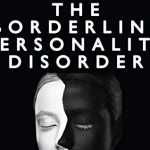Borderline Personality Disorder Test

Borderline personality disorder, commonly known as BPD, is a mental disorder usually diagnosed in young or early adulthood and affecting between 1.6 and 5.9 percent of Americans. It is commonly misdiagnosed or missed altogether as some of the symptoms can mirror other disorders, and BPD often coexists with another disorder. The major indicators of BPD are an inability to maintain healthy relationships, intense mood swings, and impulsivity leading to risky behavior.
Researchers aren’t sure what causes borderline personality disorder, but studies suggest that genetic, environmental, and social factors may increase the risk of developing it. These factors may include:
• Family history: People who have a close family member (such as a parent or sibling) with the illness may be at a higher risk of developing borderline personality disorder.
• Brain structure and function: Research shows that people with borderline personality disorder may have structural and functional changes in the brain, especially in the areas that control impulses and emotion regulation. However, the studies do not demonstrate whether these changes were risk factors for the illness or if such changes were caused by the disorder.
• Environmental, cultural, and social factors: Many people with borderline personality disorder report experiencing traumatic life events, such as abuse, abandonment, or hardship during childhood. Others may have been exposed to unstable, invalidating relationships or conflicts.
Although these factors may increase a person’s risk, it doesn’t mean it is certain that they’ll develop borderline personality disorder. Likewise, people without these risk factors may develop the disorder in their lifetime.
High-Functioning Borderline Personality Disorder Test
This High-Functioning Borderline Personality Disorder Test is for those who suspect that they may have this condition or simply want to understand their symptoms in a better manner. High-Functioning Borderline Personality Disorder can cause negative emotions to be buried.
Go through the statements below and choose the option that you agree with the most.
1. I need things to be perfect all the time.
a. Yes
b. No
2. I sometimes feel that I have no substance inside me and am empty.
a. Yes
b. No
3. I often engage in activities that can endanger my own life or even that of other people around me.
a. Yes
b. No
4. I get stressed when someone disturbs my routine and my work.
a. Yes
b. No
5. When I am anxious, I often isolate myself from others and don’t talk to others for days altogether.
a. Yes
b. No
6. My partners have often complained that I tend to become too clingy when I am in a relationship with them.
a. Yes
b. No
7. When I like someone romantically, I pull out all stops to show them romantic gestures, even if they have not declared that they like me back.
a. Yes
b. No
8. I cannot take it when people stop talking to me all of a sudden and this can make me feel very anxious and frustrated.
a. Yes
b. No
9. When I am doing something important, I need others to give their approval and their direction otherwise I can get confused and stressed.
a. Yes
b. No
10. I am known to get angry very quickly because of very small triggers.
a. Yes
b. No
11. The way I behave has caused many people to stop talking to me altogether.
a. Yes
b. No
12. I have tried to kill myself or even tried to harm myself.
a. Yes
b. No
13. My life has taken many different directions and does not follow a steady course.
a. Yes
b. No
14. I have quit many jobs after a few days of working at the company.
a. Yes
b. No
15. I sometimes space out for long periods of time.
a. Yes
b. No
16. I am often afraid that people close to me will leave me at any second.
a. Yes
b. No
17. I have tried putting in extra efforts to stop people from abandoning me, even if they have not said they would do so.
a. Yes
b. No
18. My perception of others can change at any time and so does my behavior towards them.
a. Yes
b. No
19. I feel that I cannot keep a job, have a family or have a stable career like many other people.
a. Yes
b. No
20. My daily routine can change at the drop of a hat.
a. Yes
b. No
21. I have strained relationships with my own family members.
a. Yes
b. No
22. I have resorted to substance abuse and drugs at many points of my life.
a. Yes
b. No
23. I often feel very lonely and that nobody truly likes me.
a. Yes
b. No
24. I need to know what my partner is up to all the time.
a. Yes
b. No
25. I sometimes feel very confident and at other times I feel the complete opposite.
a. Yes
b. No
26. My romantic relationships have been very passionate but have not been stable.
a. Yes
b. No
27. The way I talk to myself in my head is mostly degrading and critical.
a. Yes
b. No
28. I find it difficult to control my anger, even if I try my best to do so.
a. Yes
b. No
29. I sometimes feel that I don’t know who I am.
a. Yes
b. No
30. I am often very paranoid of others and their motives toward me.
a. Yes
b. No
31. I have taken part in inappropriate sexual behaviors often.
a. Yes
b. No
32. I feel that life is boring.
a. Yes
b. No
33. I keep obsessing over certain thoughts and memories to the point that my entire energy is depleted because of this.
a. Yes
b. No
34. I feel very depressed.
a. Yes
b. No
Results of High-Functioning Borderline Personality Disorder Test
If your answers were more of a ‘yes’, then it is likely that you are showing symptoms of High-Functioning Borderline Personality Disorder Test. High-Functioning Borderline Personality Disorder can show up pretty quietly but also needs rigorous treatment.
If your answers were more of a ‘no’, then it is possible that you don’t have High-Functioning Borderline Personality Disorder. However, if you still suspect that you are suffering from this form of BPD, it is advisable that you talk to a mental health professional.





